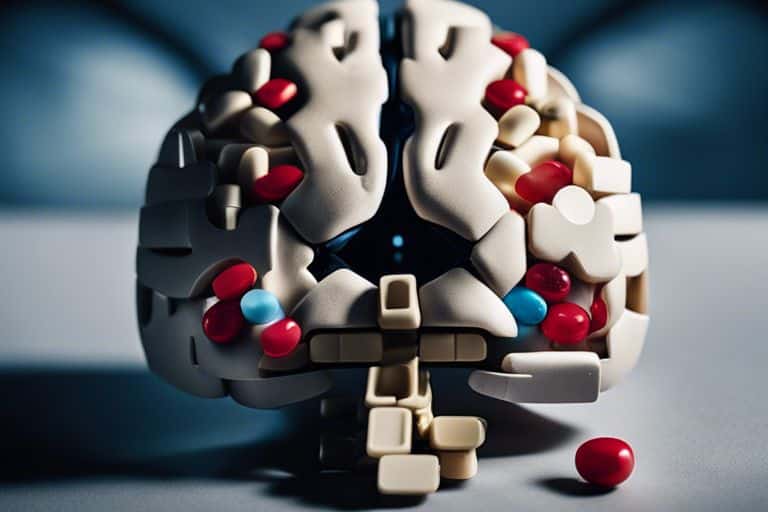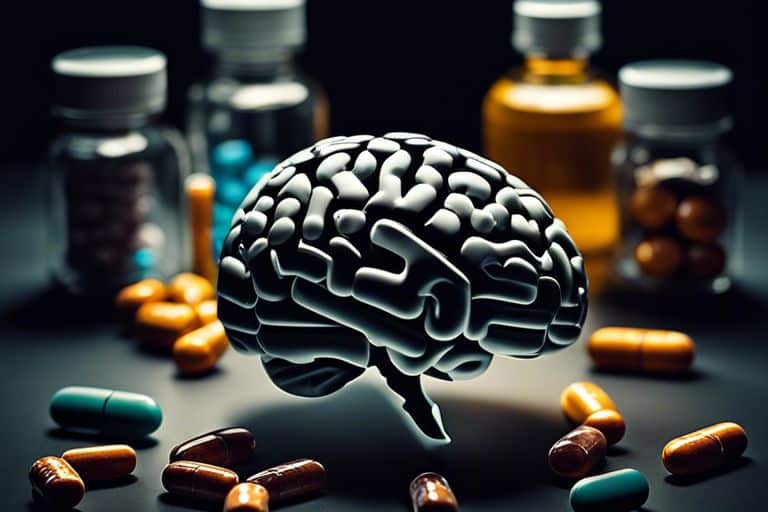Do I Need Help? Take Our Confidential Self Assessment Quiz Now. Take the Quiz
Do I Need Help? Take Our Confidential Self Assessment Quiz Now. Take the Quiz
An individual’s susceptibility to mental health disorders is a multifaceted issue that can be influenced by various factors. One significant element that has been extensively studied is the relationship between drug addiction and mental illness. Understanding how drug addiction contributes to an increased risk of mental health disorders is crucial in addressing the complexities of dual diagnosis and providing effective treatment options for individuals grappling with these issues.
The concept of drug addiction is a complex and multifaceted issue that has far-reaching consequences on an individual’s physical, psychological, and social well-being. It is crucial to delve into the various aspects of drug addiction to understand its impact on mental health and overall quality of life.
Addiction, also known as substance use disorder, is defined as a chronic, relapsing disorder characterized by compulsive drug seeking, continued use despite harmful consequences, and long-lasting changes in the brain. According to the Diagnostic and Statistical Manual of Mental Disorders (DSM-5), substance use disorders are classified into mild, moderate, and severe categories based on the number of criteria met by an individual.
The criteria for substance use disorders include tolerance, withdrawal symptoms, unsuccessful attempts to quit or cut down on drug use, excessive time spent obtaining, using, or recovering from the effects of drugs, and neglect of major roles in favor of drug consumption, among others. These criteria help clinicians and researchers assess the severity of addiction and tailor treatment plans accordingly.
With advances in neuroscience, we now have a better understanding of the neurobiological mechanisms underlying addiction. The brain regions involved in addiction include the prefrontal cortex, amygdala, hippocampus, and the brain’s reward center, known as the mesolimbic dopamine system. These areas play a crucial role in decision-making, impulse control, learning, and the processing of rewarding stimuli.
Criteria, substance use disorders, addiction, tolerance, withdrawal symptoms, DSM-5, neurobiological mechanisms, prefrontal cortex, mesolimbic dopamine system, decision-making.
Mental illness refers to a wide range of conditions that affect mood, thinking, and behavior. These conditions can significantly impact a person’s ability to function in daily life. The classification of mental disorders is based on the Diagnostic and Statistical Manual of Mental Disorders (DSM-5), which outlines criteria for diagnosing different mental health conditions.
There are various types of mental illnesses, including anxiety disorders, mood disorders, personality disorders, and psychotic disorders. Each type of mental illness has its own set of symptoms and treatment options. It is important to note that mental illness is a medical condition that requires professional diagnosis and treatment.
Mental disorders are complex conditions that involve disruptions in brain function and neurotransmitter systems. Neurobiology plays a critical role in the development and progression of mental illnesses. Factors such as genetics, brain chemistry, and environmental stressors can all contribute to the onset of mental disorders.
Exploring the neurobiology of mental disorders involves studying the structure and function of the brain, as well as the interactions between different neurotransmitters and neural circuits. Understanding the neurobiological underpinnings of mental illnesses can help guide the development of more effective treatments and interventions for individuals struggling with these conditions.
For individuals struggling with drug addiction, the risk of developing mental illness is a serious concern. Substance abuse can directly impact the brain’s chemistry and functioning, leading to changes that increase vulnerability to conditions such as depression, anxiety, and psychosis. The use of substances like alcohol, opioids, or stimulants can also exacerbate underlying mental health issues or trigger the onset of new symptoms.
In addition, the lifestyle associated with drug addiction, including social isolation, financial difficulties, and legal problems, can contribute to the development of mental health disorders. Chronic drug use can impair decision-making abilities and affect judgment, further complicating an individual’s ability to cope with stressors and manage their mental well-being.
Any mental illness that causes distress or impairs daily functioning can potentially lead an individual to seek relief through self-medication with drugs or alcohol. Conditions such as depression, anxiety, bipolar disorder, or PTSD can drive individuals to use substances as a way to numb emotional pain, alleviate symptoms, or cope with overwhelming stress. Unfortunately, this coping mechanism often leads to a cycle of dependence and addiction.

Not only do individuals struggling with drug addiction face physical health risks, but they are also at a higher risk of developing mental health disorders simultaneously. This phenomenon of co-occurring disorders, also known as dual diagnosis, sheds light on the complex relationship between substance abuse and mental illness.
An essential aspect of understanding the epidemiology of co-occurring disorders is examining the prevalence rates of dual diagnosis. Studies have indicated that a significant portion of individuals with substance use disorders also meet the criteria for various mental health conditions. For instance, it has been reported that approximately one-third of individuals with a mental illness also struggle with drug addiction.
An in-depth analysis of risk factors and population studies has revealed valuable insights into the intersection of drug addiction and mental illness. Factors such as genetics, environmental influences, and early exposure to substances play a crucial role in the development of co-occurring disorders. Population studies have shown that certain demographics, such as individuals with a family history of mental illness or substance abuse, are more vulnerable to experiencing dual diagnosis.

Now, let’s explore the impacts of comorbidity on the treatment and recovery process for individuals struggling with drug addiction and mental illness. Any individual facing both challenges may find it more difficult to achieve successful outcomes in their treatment journey. This is because the presence of one condition often complicates the management of the other, leading to a more complex and nuanced approach required for effective interventions.
Any delay in addressing either the substance use disorder or the mental health issue can also impede progress in treatment and recovery. It is crucial for healthcare providers to have a comprehensive understanding of how these conditions intersect and influence each other in order to tailor treatment plans that address both aspects simultaneously.
On a broader scale, the comorbidity of drug addiction and mental illness has significant social and economic implications. Implications of this dual diagnosis include increased healthcare costs, higher rates of disability and unemployment, as well as greater strain on social support systems. Furthermore, the stigma associated with both drug addiction and mental illness can exacerbate the challenges faced by individuals dealing with comorbidity.
Implications of comorbidity between drug addiction and mental illness can also extend to issues such as homelessness, involvement with the criminal justice system, and decreased quality of life. Addressing these social and economic consequences requires a holistic approach that takes into account the complex interplay between substance use disorders and mental health conditions.
Programs aimed at educating the public about the risks and consequences of drug addiction and mental illness play a crucial role in early intervention and prevention. By increasing awareness about the signs and symptoms of addiction and mental health issues, these programs empower individuals to recognize when they or someone they know may need help. Through education, individuals can make informed decisions about their health and seek help sooner rather than later.
Additionally, awareness programs help reduce stigma surrounding addiction and mental illness, making it easier for individuals to reach out for support without fear of judgment. These programs often provide resources and information on where to seek help, as well as strategies for maintaining good mental health and preventing substance abuse.
Services that provide accessible and affordable mental health and addiction treatment are essential for early intervention and prevention efforts. By ensuring that individuals have access to the support they need, we can address underlying mental health issues and substance use disorders before they escalate. Timely intervention can prevent the development of more severe mental health conditions and reduce the risk of long-term addiction.
Access: Providing timely access to mental health and addiction services is crucial in addressing the root causes of substance abuse and mental illness. By offering a range of treatment options, including therapy, counseling, and medication management, individuals can receive personalized care that addresses their unique needs. Early intervention through these services can help individuals build the necessary skills and resilience to overcome addiction and improve their mental well-being.
From the above discussion, it is clear that drug addiction significantly contributes to an increased risk of mental illness. Substance abuse can lead to the development of mental health disorders such as depression, anxiety, and psychosis. The relationship between drug addiction and mental illness is complex and intertwined, with each condition exacerbating the other.
It is important for individuals struggling with substance abuse to seek help and support in order to address both their addiction and mental health issues. Treatment programs that address both aspects of the individual’s well-being are essential in promoting recovery and improving overall quality of life. By addressing both drug addiction and mental illness concurrently, individuals can have a better chance of achieving long-term sobriety and mental wellness.
A: Yes, drug addiction can contribute to an increased risk of mental illness. Substance abuse can lead to changes in brain chemistry, which may result in the development of mental health disorders.
A: Mental illnesses commonly associated with drug addiction include depression, anxiety disorders, bipolar disorder, and schizophrenia.
A: Drug addiction can complicate mental health treatment by making it more challenging to diagnose and treat underlying mental health disorders. Substance abuse can also interfere with the effectiveness of mental health medications.
A: Yes, treating drug addiction can help improve mental health outcomes. Addressing substance abuse issues can reduce the severity of mental health symptoms and improve overall well-being.
A: Integrated drug rehab near you programs that address both drug addiction and mental illness simultaneously offer the best outcomes. These programs may include therapy, medication management, support groups, and lifestyle modifications to promote recovery and overall wellness.
Our comprehensive addiction treatment programs are designed to meet you where you are in your recovery process. Whether you’re seeking detox services to safely withdraw from substances, residential treatment for intensive therapeutic support, or outpatient therapy to transition back into daily life, we have the resources and expertise to help you succeed. Through a combination of evidence-based therapies, holistic approaches, and compassionate support, we empower our clients to confront their addiction, overcome obstacles, and build the foundation for a brighter future.
Get Help Now 916-723-1319